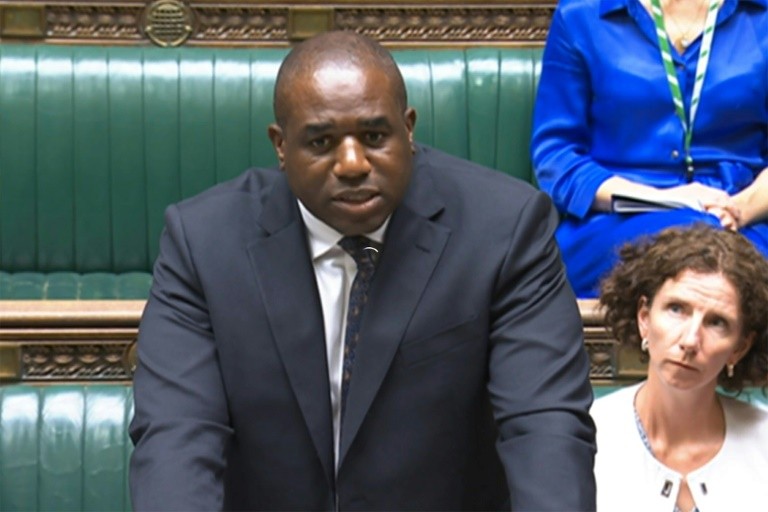
Britain said Monday it would suspend some arms exports to Israel, citing a "clear risk" that they could be used in a serious breach of international humanitarian law.
Israel's defence minister Yoav Gallant said he was "deeply disheartened" to hear of the sanctions but rights groups said the suspensions did not go far enough.
Foreign Secretary David Lammy told parliament that the UK would suspend 30 out of 350 arms exports licences following a review by his department into Israel's conduct of its war against Hamas militants.
He said the partial ban covered items "which could be used in the current conflict in Gaza", including fighter aircraft, helicopters and drones.
The ban does not include parts for Israel's advanced F-35 stealth fighter jets, Lammy added.
Lammy announced a review looking at the arms sales shortly after Labour swept to power in a landslide general election victory over the Conservatives in early July.
"It is with regret that... the assessment I have received leaves me unable to conclude anything other than that for certain UK arms exports to Israel, there does exist a clear risk that they might be used to commit or facilitate a serious violation of international humanitarian law," he told lawmakers.
He stressed that the suspension was "not a determination of innocence or guilt" and that the situation would be kept under review.
"We have not and could not arbitrate on whether or not Israel has breached international humanitarian law," Lammy said, adding that Britain is "not an international court".
Lammy restated Britain's support for Israel to defend itself and stressed the suspension would not have a "material impact on Israel's security".
Britain's centre-left Labour government has repeatedly called for a ceasefire in the Israel-Hamas war, and for the speeding up of aid deliveries into Gaza, since taking power on July 5.
It has largely followed the same approach to the conflict as the previous Conservative government, with Lammy and other ministers at pains to demand Hamas release the hostages seized in its October 7 attacks as part of any ceasefire.
Some commentators have suggested however that Labour, led by Prime Minister Keir Starmer -- a former human rights lawyer -- may take a tougher long-term stance towards Israel and how it conducts its military operations.
Last week, the UK foreign ministry said it was "deeply" concerned by an Israeli military operation in the occupied West Bank, urging it to "exercise restraint" and adhere to international law.
Amnesty International's UK chief executive Sacha Deshmukh said the government's decision was a belated acceptance of "the very clear and disturbing evidence of Israeli war crimes in Gaza".
But he and other rights groups said it did not go far enough, and called the exemption for F-35 components "a catastrophically bad decision" as the jets were being used "extensively" in Gaza.
A trio of rights groups took the Dutch government to court this year over its supply of parts for the jets.
"We need to see a complete halt -- with no loopholes, including for components for F-35s supplied to the USA for onward export to the Israeli military -- to all UK arms transfers to Israel," Deshmukh added.
The UK government has faced legal action from rights groups about its export of arms and military components to Israel.
Britain's strategic licensing criteria states that weapons should not be exported when there is a clear risk they could be used in international humanitarian law violations.
That led to claims that the government was ignoring its own rules in the Gaza conflict.








